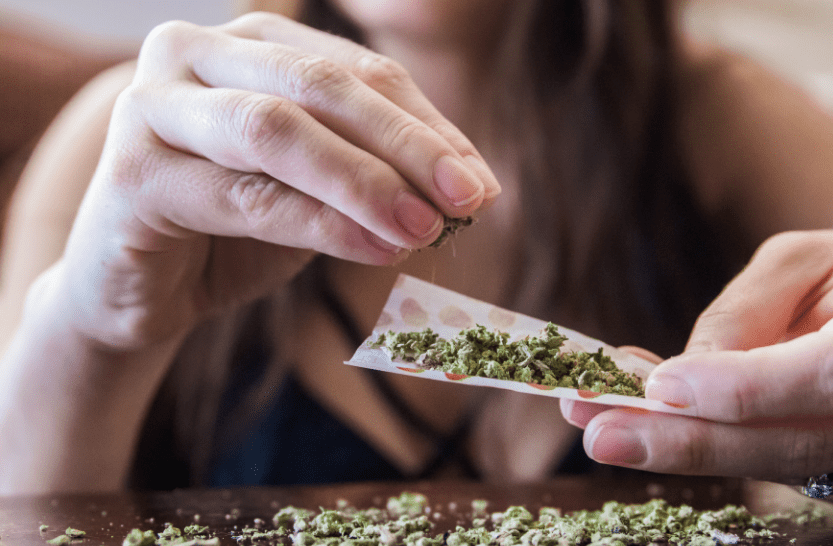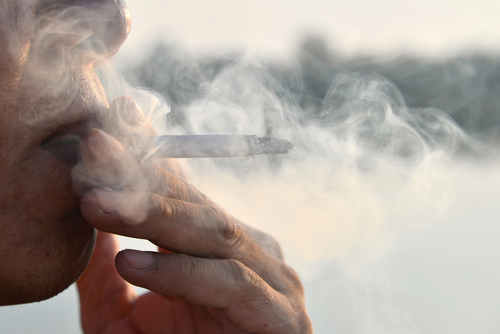When an individual abruptly stops using marijuana, uncomfortable side effects and Marijuana withdrawal symptoms can occur. These symptoms are defined by the American Psychological Association, withdrawal is a syndrome that develops after cessation of prolonged, heavy consumption of a substance, with symptoms varying by substance but generally including physiological, behavioral, and cognitive manifestations.
Withdrawal symptoms differ based on the substance of abuse, with some manifesting mild withdrawal symptoms while others yield painful and dangerous symptoms. Regardless of the substance that has been abused, marijuana withdrawal symptoms can be very uncomfortable, which is why it is highly recommended to seek a professional detox clinic to assist in the process. Clinicians at these facilities will monitor the withdrawal process and ensure the individual feels safe and supported.
The length of marijuana withdrawal symptoms depend on the level of dependency and the amount of the drug consumed regularly. Generally, the Marijuana withdrawal symptoms will begin the initial week of abstinence and last for around two to three weeks.
Marijuana Addiction Explained
Marijuana, also known as cannabis, has the capacity to cause dependence in certain people. Dependence is an enduring problem that is depicted by an uncontrollable utilization of a substance no matter the unfavorable results. The principal ingredient in marijuana is delta-9-tetrahydrocannabinol (THC), which is responsible for the substance’s psychological impacts. Not to be confused with Delta 8 which is also on the rise.

When marijuana is ingested, THC binds to cannabinoid receptors in the brain, which can result in a euphoric “high” feeling connected with marijuana use. Addiction to marijuana builds up gradually, as the brain adjusts to the presence of THC. With repeated consumption, the brain may become dependent on the drug to perform normally. This can lead to withdrawal symptoms when the drug is not taken, such as irritability, anxiety, and difficulty sleeping.
Studies show that marijuana addiction is influenced by a mix components – genetic, environmental, and individual factors. A person’s genetic makeup, especially if there’s a history of addiction in the family, significantly increases their susceptibility. Furthermore, the use of marijuana during the teenage years is particularly risky, as the brain is still maturing, heightening the potential for addiction.

How Long Do Weed Withdraw Symptoms Last?
The length of the marijuana withdrawal symptoms depend on the length of the addiction and the quantity of the drug regularly used. Those who have abused marijuana for a short time, or only used very little, may have a significantly shorter withdrawal period and display relatively mild symptoms.
In contrast, those who have struggled with marijuana abuse for an extended amount of time, or in large quantities, may experience an extended withdrawal stage and more dangerous symptoms. Withdrawal symptoms typically show up within the first week after use and last for 10-20 days. Rarely, marijuana withdrawal can last for over a month.
Marijuana Withdrawal Symptoms
Marijuana withdrawal symptoms vary based on the length of the addiction. For the average individual, symptoms appear within the first week and last approximately 10-20 days. If the marijuana addiction is severe, withdrawal symptoms can be life-threatening.
Withdrawal Symptoms Include:
Profuse sweating
Sweating is common when going through withdrawal. This is the physical body’s way of ridding itself of all remaining traces of the substance.
Anxiety
An individual withdrawing from this highly addictive opioid is likely to experience increased levels of anxiety, restlessness, and agitation. As the body adapts to the absence of marijuana, the individual will gradually become hyper-alert and often have trouble sleeping.
Loss of appetite
Marijuana typically increases appetite when used. Once dependency develops, an individual may require marijuana in order to feel hungry at all; therefore, quitting marijuana typically causes an initial loss in appetite followed by weight loss.
Insomnia
Because the physical body becomes dependent on the presence of THC, an active component in marijuana, the brain takes time to adapt to this absence. As a depressant, marijuana has sedative qualities and is often used to help individuals fall and stay asleep. Once use is stopped, an individual will likely have trouble sleeping.
Depression
Marijuana abuse causes a chemical alteration within the brain. Once withdrawal begins, the individual may feel depressed as marijuana is no longer altering neurotransmitter activity as was once frequently occurring.
Due to the severity of some of these symptoms and the potential for life-threatening side effects, clinical supervision within a professional detox facility is highly recommended.

How Do I Quit Using Marijuana?
There are several different ways to quit using marijuana, and the best approach will vary depending on the individual’s specific needs and circumstances. Here are a few common methods:
Professional Treatment
Rehab centers are an important part of recovery from addiction, offering a structured and supportive environment to help individuals through the difficult process of detoxification. Many rehab centers offer counseling, therapy, and support groups to help individuals gain insight into their addiction and come up with strategies to cope without drugs or alcohol. Rehab is a fundamental step in overcoming addiction, and those who take the time to go through this process often have the best outcomes.
Medication-Assisted Treatment
Medication-Assisted Treatment (MAT) is a scientifically supported method for addressing substance use disorders. This treatment combines FDA-approved medications with therapeutic interventions like cognitive behavioral therapy, 12-step programs, and other methods to help cope with withdrawal symptoms and diminish cravings. The integration of medication with these therapies enhances recovery prospects, with MAT demonstrating a decrease in substance misuse, a downturn in relapse occurrences, and support for sustained sobriety from drugs and alcohol.
Gradually Reduce Use
Gradual reduction is an effective method for long-term marijuana users to eventually quit the drug altogether. This approach is useful because it allows individuals to slowly reduce their marijuana usage over time in order to minimize or avoid withdrawal symptoms. Gradual reduction is also advantageous due to its flexibility, allowing individuals to adjust the method depending on their own personal needs and preferences. Ultimately, the gradual reduction can be a helpful strategy for those looking to stop using marijuana altogether.
Therapy
Behavioral therapy is frequently used to address marijuana dependency. It requires collaborating with a therapist to modify the behaviors and mental processes that contribute to cannabis consumption. Through this therapy, individuals learn to understand the influence of their emotions and thoughts on their drug use and acquire more constructive coping mechanisms. It is especially beneficial for individuals with co-occurring diagnosis, offering them a chance to address these concerns in a secure setting.
Asheville Recovery Center Can Help
It is extremely important to seek help immediately if you or a loved one is struggling with marijuana addiction or withdrawal. The founders of Asheville Recovery Center, as well as many of our addiction therapists, have struggled with addiction and now enjoy life in recovery. They understand the struggles of addiction and how difficult it is to overcome alone.
While we do not have a detox facility, we can refer you to a quality clinic where experts can supervise your withdrawal phase. Upon successfully completing the detox process, we will work with you to formulate a custom treatment plan designed to fit your individual needs. If you feel that you or a loved one is struggling with substance abuse, our specialists are on standby and ready to help. Call us and speak with an addiction expert today so you can take the first step towards a rewarding life of sobriety.







